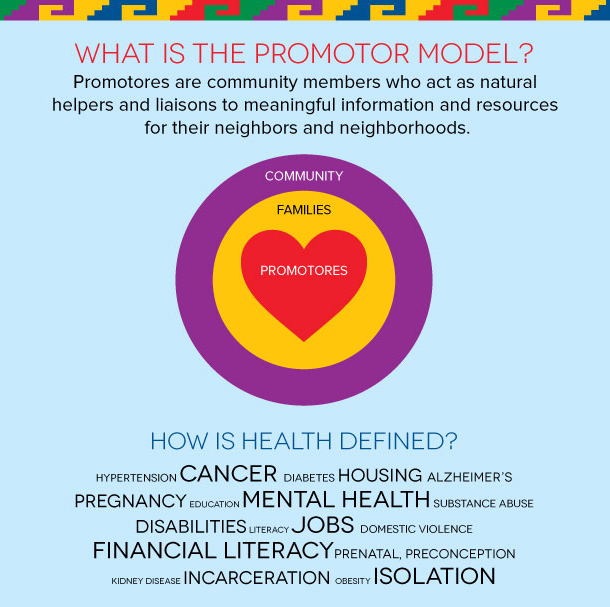Who Are Promotores?
 Promotores and Community Health Workers are liaisons (links) between their communities and health and social service providers.
Promotores and Community Health Workers are liaisons (links) between their communities and health and social service providers.
Because they share the same language, culture, ethnicity, status and experiences of their communities, Promotores are able to reduce the barriers to health education and services that are common for native-born and immigrant communities. The result is better health for more individuals, families and communities.
Promotores may be volunteers or paid workers, and are also known as patient liaison, peer educator, health advocate, family educator, outreach worker or system navigator. Regardless of what they are called, Promotores build and maintain relationships of trust and respect within their communities, and understand the reality of how people live and the obstacles that keep them from success.
Promotores work to improve conditions so that their children, and all children, will be healthy, better educated and productive citizens.
The Ten Primary Characteristics and Values of Promotores
- Promotores create and cultivate egalitarian relationships based on mutual trust, understanding and respect.
- Promotores are committed to sharing information and resources.
- Promotores approach the community with empathy, love and compassion.
- Promotores are accessible and trusted members of the community where they live.
- Promotores share similar life experiences as the community.
- Promotores have a profound desire to serve the community, are tireless in their service, and limitless in their generosity of spirit.
- Promotores communicate in the language of the people and are knowledgeable about the community’s cultural traditions.
- Promotores are a two-way bridge connecting the community to resources and ensuring that institutions respond to community needs.
- Promotores are natural advocates who are committed to social justice.
- Promotores are effective role models for community change.
Source: The Promotor Model, A Model for Building Healthy Communities: A Framing Paper, 2011, funded by The California Endowment.
